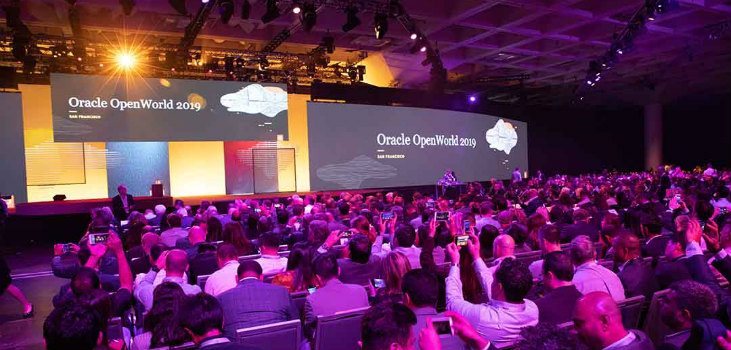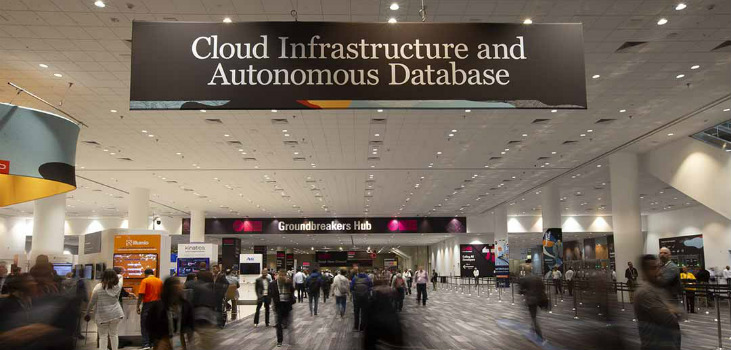Keeping in mind its ultimate goal of creating an ‘autonomous’ cloud, Oracle announced the ‘Oracle Cloud Free Tier’ programme that will let organisations, developers, students, and educators to build, learn, and explore the full functionality of Oracle Autonomous Database and Oracle Cloud Infrastructure. The ‘Oracle Cloud Free Tier’ includes Always Free services for anyone to try the company’s self-driving database and Oracle Cloud Infrastructure for an unlimited time.
At the keynote of the annual conference, Oracle Co-founder and CTO Larry Ellison targeted rivals Amazon Web Services (AWS) reiterating the company’s autonomous strategy with the availability of Oracle Autonomous Linux -- the industry’s first and only autonomous operating environment. “Autonomous systems eliminate human labor...And when you eliminate labor, you eliminate human error,” Ellison said.
Oracle says that while other hyperscale cloud vendors provide a free 12-month trial of their relational database, Oracle’s Always Free Autonomous Database remains free for as long as it is used. It also offers more compute and storage as Always Free services than its competitors do with their free trials. Users can upgrade easily to get more instances, larger instances, and additional services.

The new programme enables developers to build applications using any language and framework on top of Oracle Cloud Infrastructure and Autonomous Database. Oracle also provides a set of free developer tools so developers can build and deploy data-driven applications faster on Oracle Autonomous Database. Oracle’s Free Tier programme has two components: First, ‘Always Free’ services, which provide access to Oracle Cloud services for an unlimited time, and, second, Free Trial, which provides $300 in credits for 30 days to try additional services and larger shapes.
Oracle unveiled Exadata Database Machine X8M, which is claims, is industry’s first database machine with integrated persistent memory and RoCE, and delivers 2.5X performance increase and 10X lower latency at the same price. Exadata X8M combines Intel Optane DC persistent memory and 100 gigabit remote direct memory access (RDMA) over Converged Ethernet (RoCE) to remove storage bottlenecks and dramatically increase performance for the most demanding workloads such as Online Transaction Processing (OLTP), analytics, IoT, fraud detection, and high frequency trading.
Oracle claims that when compared to the fastest Amazon RDS storage for Oracle, Exadata X8M delivers up to 50X lower latency, and 15X more capacity. Compared to Azure SQL Database Service storage, Exadata X8M delivers 100X lower latency, and 300X more capacity. Additionally, the cloud major also announced the availability of Zero Data Loss Recovery Appliance X8, which uses new 100Gb RoCE for high throughput internal data transfers between compute and storage servers.
Expands Autonomous Database Capabilities: Apart from expanding its cloud business to four new regions across four continents in a single month, Oracle now offers a dedicated deployment option for Oracle Autonomous Database. The company said that its Oracle Autonomous Database is experiencing ‘exceptional customer momentum’ across the globe within its first year of availability. Oracle also released Enterprise Manager that provides expanded support for Oracle Autonomous Database.

‘Oracle’s passion in helping customers solve tomorrow’s problems through technological investment and innovation is unparalleled. Our Autonomous Database sets the bar in the industry, and we’re very excited about introducing many new capabilities across our product line,’ Andrew Mendelsohn, Executive Vice President, Database Server Technologies at Oracle, said in a statement.
Expands Exadata Portfolio: At the event, Oracle announced the availability of its Gen 2 Exadata Cloud at Customer. Oracle Generation 2 Exadata Cloud at Customer -- with the Cloud Control Plane deployed in Oracle’s Public Cloud -- enables organisations to get its Oracle Exadata Cloud delivered in their own data centre. Exadata X8M integrates technologies, which enable an Exadata X8M system to deliver 2.5X more I/Os and 10X lower I/O latency compared to the previous release.
Oracle announced the availability of an integration between Oracle Digital Assistant and Microsoft Teams. This means that Enterprise customers can now access Oracle Cloud Applications through an AI-powered voice experience in Microsoft Teams. Teams is a unified communications platform by Microsoft that combines workplace chat, video meetings, file storage, and application integration.
‘Using Oracle Digital Assistant, business users can simply and conversationally interact with business applications directly from their Microsoft Teams interface just as they would collaborate with their fellow employees or other productivity tools. Completing daily work tasks becomes much more efficient as the AI-trained conversational access doesn’t require additional employee training on different applications. This is yet another way we are enabling customers to run mission-critical enterprise workloads across Microsoft 365 and Oracle Cloud,’ Suhas Uliyar, Vice President, AI and Digital Assistant at Oracle, added.
